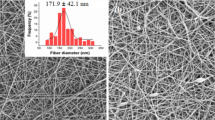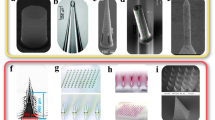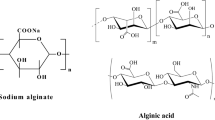Abstract. Microencapsulation refers to a technique of immunoisolation by coating single cells or tissue with a semipermeable membrane. By combining microencapsulation with a specific tissue culturing method, iso-, allo-, and xenotransplantation of parathyroid tissue has been achieved without immunosuppression in a long-term animal model. Prior to its clinical use, continued analyses of the alginate, used as a coating substance, determined its mitogenic properties. Purification of the commercially available alginate was achieved using patented electrophoretic procedures, resulting in an amitogenic alginate suitable for use in humans. However, this alginate exhibited entirely different physical properties. We have recently shown that isotransplanted parathyroid tissue remains vital and functioning in vivo over long periods of time using the novel amitogenic alginate. It is essential to document, whether the alginate is able to maintain immunoisolation. We have therefore assessed its in vivo function compared to the mitogenic alginate in a transgenic animal model. Altogether 600 parathyroid glands from 300 Lewis rats (donor animals) were excised and subjected to tissue culture. Thereafter they were allotransplanted to 30 parathyroidectomized Dark-Auita rats, microencapsulated with the amitogenic or the mitogenic alginate or naked, with 10 recipient animals in each group. Total serum calcium and parathyroid hormone levels were monitored continuously at weekly intervals for 30 weeks. After 26 weeks the transplant beds were excised and subjected to histologic examination. More than 6 months after allotransplantation 9 of 10 animals that had received amitogenic transplants, compared to 7 of 10 animals in the group with mitogenic microcapsules were normocalcemic. Animals that had received naked parathyroid tissue were hypocalcemic as soon as 2 weeks after allotransplantation. Correspondingly, normocalcemic animals showed vital parathyroid tissue inside the microcapsules, which were surrounded by a significantly smaller rim of fibroblasts when amitogenic alginate had been used. In addition to confirming physiologic long-term function, we were able to document for the first time that immunoisolation can also be achieved with the novel amitogenic alginate, which is suitable for clinical use.
Similar content being viewed by others
Author information
Authors and Affiliations
Rights and permissions
About this article
Cite this article
Hasse, C., Zielke, A., Klöck, G. et al. Amitogenic Alginates: Key to First Clinical Application of Microencapsulation Technology. World J. Surg. 22, 659–665 (1998). https://doi.org/10.1007/s002689900449
Issue Date:
DOI: https://doi.org/10.1007/s002689900449




